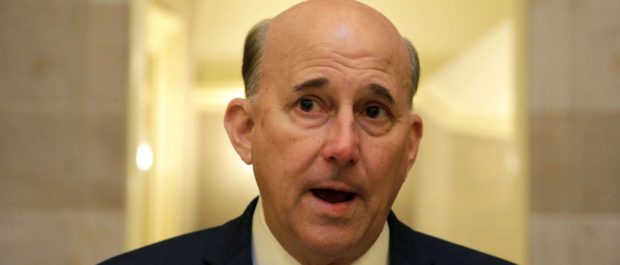As the coronavirus pandemic stretches the resources of hospitals across the country, a bipartisan group of legislators are warning that a new rule proposed by the Centers for Medicare and Medicaid Services (CMS) will place added financial strain on the medical system.
The rule, called the Medicaid Fiscal Accountability Rule (MFAR), “would cut state and federal Medicaid funding by as much as 50% in all 50 states,” placing added strain on hospitals already feeling pressure from the added patient load.
MFAR is designed to bring transparency to Medicaid billing, but the American Hospital Association warns the proposed MFAR rule “restricts state access to important funding streams, restricts states’ ability to make supplemental payments to offset base payments set below the cost of providing care.” This would have hospitals operating at a loss for many Medicaid patients.(RELATED: Survey: More Doctors Report They Cannot Afford To Take New Medicaid, Medicare Patients)

Rep. Louis Gohmert, Republican of Texas, speaks to the media during the opening day of the 115th Congress in Washington, U.S., January 3, 2017. (REUTERS/Joshua Roberts)
Hospitals, especially rural hospitals, already “operate on razor thin margins mostly due to the chronic underfunding from Medicare and Medicaid,” according to the North Arkansas Regional Medical Center (NARMC). This past weekend, NARMC announced they were furloughing 35 employees.
“Most of the margin for rural hospitals comes from elective services such as surgery, lab and imaging,” they added. In the midst of the pandemic, those elective procedures have been canceled from coast to coast, adding additional strain to the system.
In March, every member of the Texas Congressional delegation, Republican and Democrat, shared their thoughts on the new rule in a joint letter. Their letter expressed concern over the impact the rule change “may have in limiting legitimate public-private partnerships that have allowed Texas hospitals to expand access to care, particularly for underserved communities and indigent patients.”(RELATED: Coronavirus Model Leveraged By White House Dramatically Reduced Its Estimates)
Florida Tax Watch, which describes itself as “an independent, nonpartisan, nonprofit taxpayer research institute and government watchdog,” warned “the proposed rule could make it much harder for states like Florida to pay for their share of Medicaid costs.” It added that, “Should MFAR take effect, those hospital districts with taxing authority will have little choice but to impose new or increased taxes.”
The MFAR issue has even entered the presidential race, with Joe Biden including his opposition of the rule as part of his COVID-19 plan. (RELATED: JINDAL: The Right Way To Achieve Medicaid Reform)
CMS has continued to move forward with MFAR even after President Trump signed a March 13 Executive Order authorizing the Department of Health and Human Services – CMS’ parent agency – to relax Medicaid requirements throughout this pandemic and signed H.R. 6201 into law on March 18 to increase the federal share of Medicaid funding.


